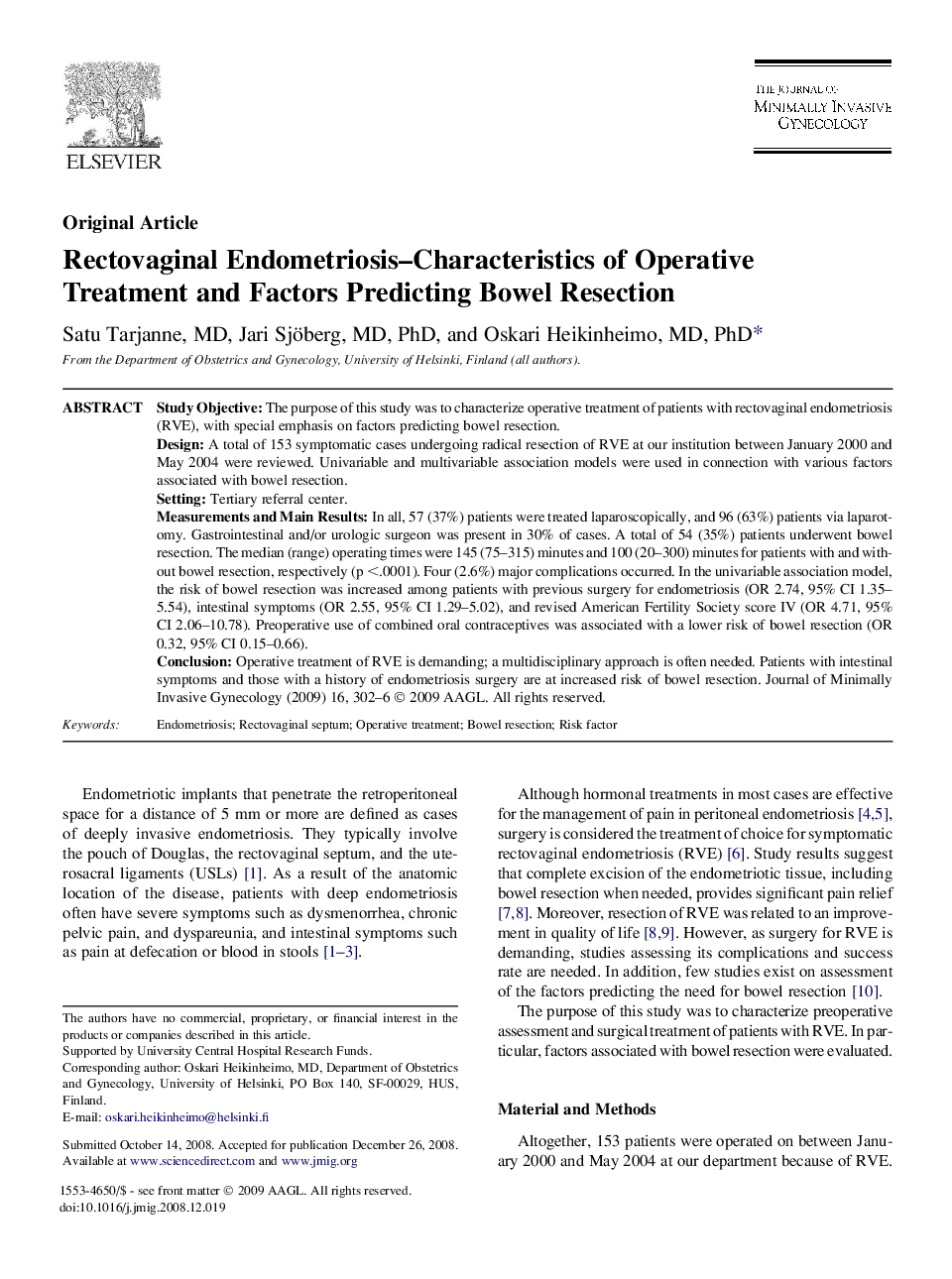| Article ID | Journal | Published Year | Pages | File Type |
|---|---|---|---|---|
| 3959766 | Journal of Minimally Invasive Gynecology | 2009 | 5 Pages |
Study ObjectiveThe purpose of this study was to characterize operative treatment of patients with rectovaginal endometriosis (RVE), with special emphasis on factors predicting bowel resection.DesignA total of 153 symptomatic cases undergoing radical resection of RVE at our institution between January 2000 and May 2004 were reviewed. Univariable and multivariable association models were used in connection with various factors associated with bowel resection.SettingTertiary referral center.Measurements and Main ResultsIn all, 57 (37%) patients were treated laparoscopically, and 96 (63%) patients via laparotomy. Gastrointestinal and/or urologic surgeon was present in 30% of cases. A total of 54 (35%) patients underwent bowel resection. The median (range) operating times were 145 (75–315) minutes and 100 (20–300) minutes for patients with and without bowel resection, respectively (p <.0001). Four (2.6%) major complications occurred. In the univariable association model, the risk of bowel resection was increased among patients with previous surgery for endometriosis (OR 2.74, 95% CI 1.35–5.54), intestinal symptoms (OR 2.55, 95% CI 1.29–5.02), and revised American Fertility Society score IV (OR 4.71, 95% CI 2.06–10.78). Preoperative use of combined oral contraceptives was associated with a lower risk of bowel resection (OR 0.32, 95% CI 0.15–0.66).ConclusionOperative treatment of RVE is demanding; a multidisciplinary approach is often needed. Patients with intestinal symptoms and those with a history of endometriosis surgery are at increased risk of bowel resection.
